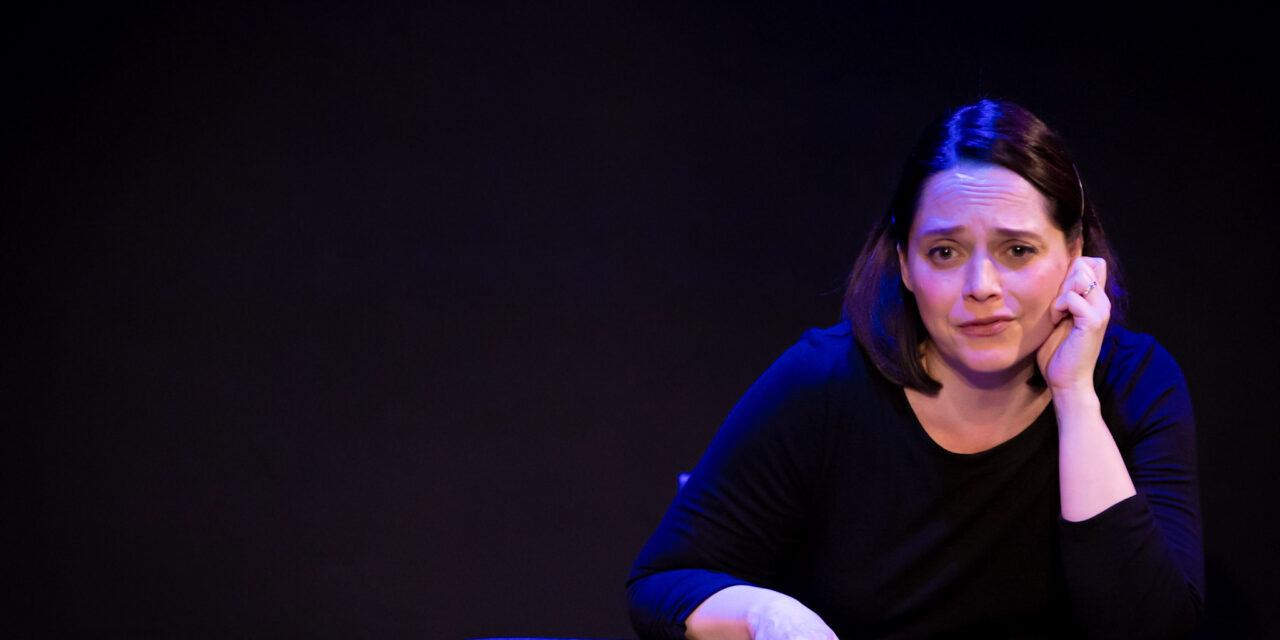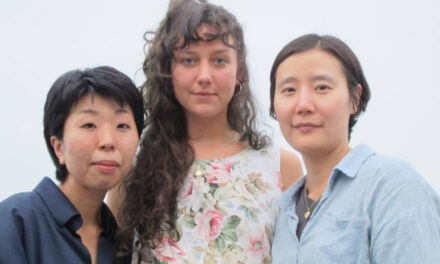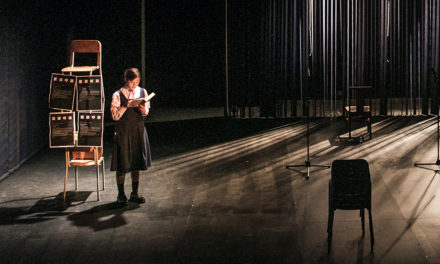Heather Dowling’s solo show, Fertile, takes the audience on a journey we don’t often get to witness in such an intimate manner. It’s easy to lose count of just how many different characters she embodies in this story about a quest to find a way to conceive that covers most if not all of the medical options all wrapped up with the cultural issues and concerns that this subject incites. Heather’s note in the program makes clear that she merged her own personal experiences in this realm with the experiences of the ‘more than 25 interviews’ she had with men and women going through the same thing. It’s an emotional subject and the script does take us into those beats but primarily this is a comedic look at the lengths a couple might go to in order to meet what just might be more than a biological need. There are social considerations that come into play, and Heather does a fine job of including as many different angles as she can.
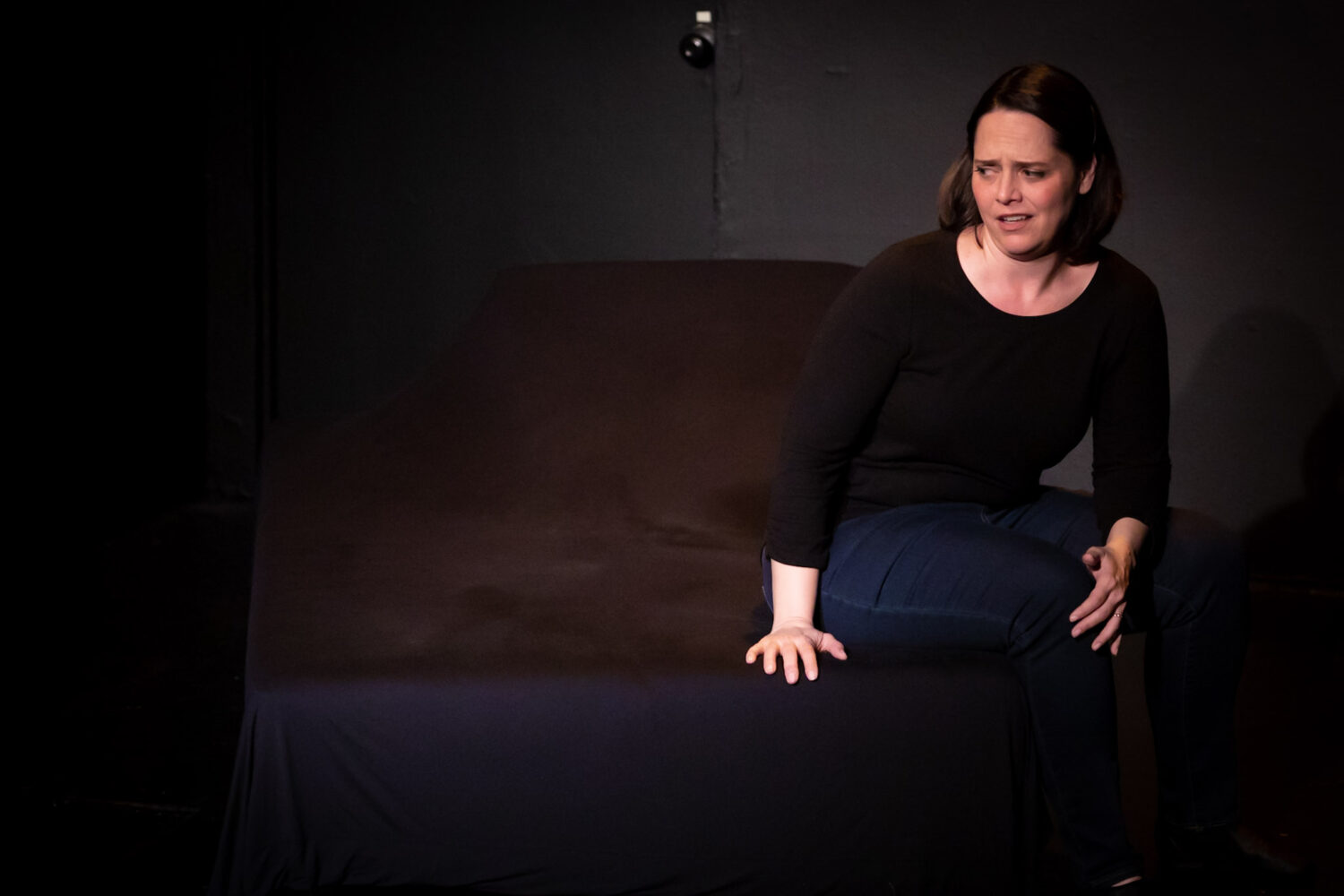
Heather R. Dowling in Fertile. Photo by Matt Kamimura.
Heather’s main character is Jenny, the wife of Mike, and the woman who endures all the slings and arrows of infertility. Her older next door neighbor is her main confidant and acts as the character that essentially bookends major beats in the play. She is patient and willing to listen without pushing her own ideas onto her young friend, even going so far as to overlook Jenny’s graphic details about some of the experiences she and her husband face. Jenny is a delightful figure who tries to see the bright side of things even when she’s lying there ‘exposed’ on an exam table while her dour doctor gives her the bad news without so much as a single thought regarding what it might be doing to her to hear it. Her male doctors are mostly dry figures with no sense of humor who speak with about as much emotion as a robot might. They’ve seen this before, and they are going to most likely see it again with their next patient in about five minutes but often their statements leave Jenny reeling and seeking out any option she can find.
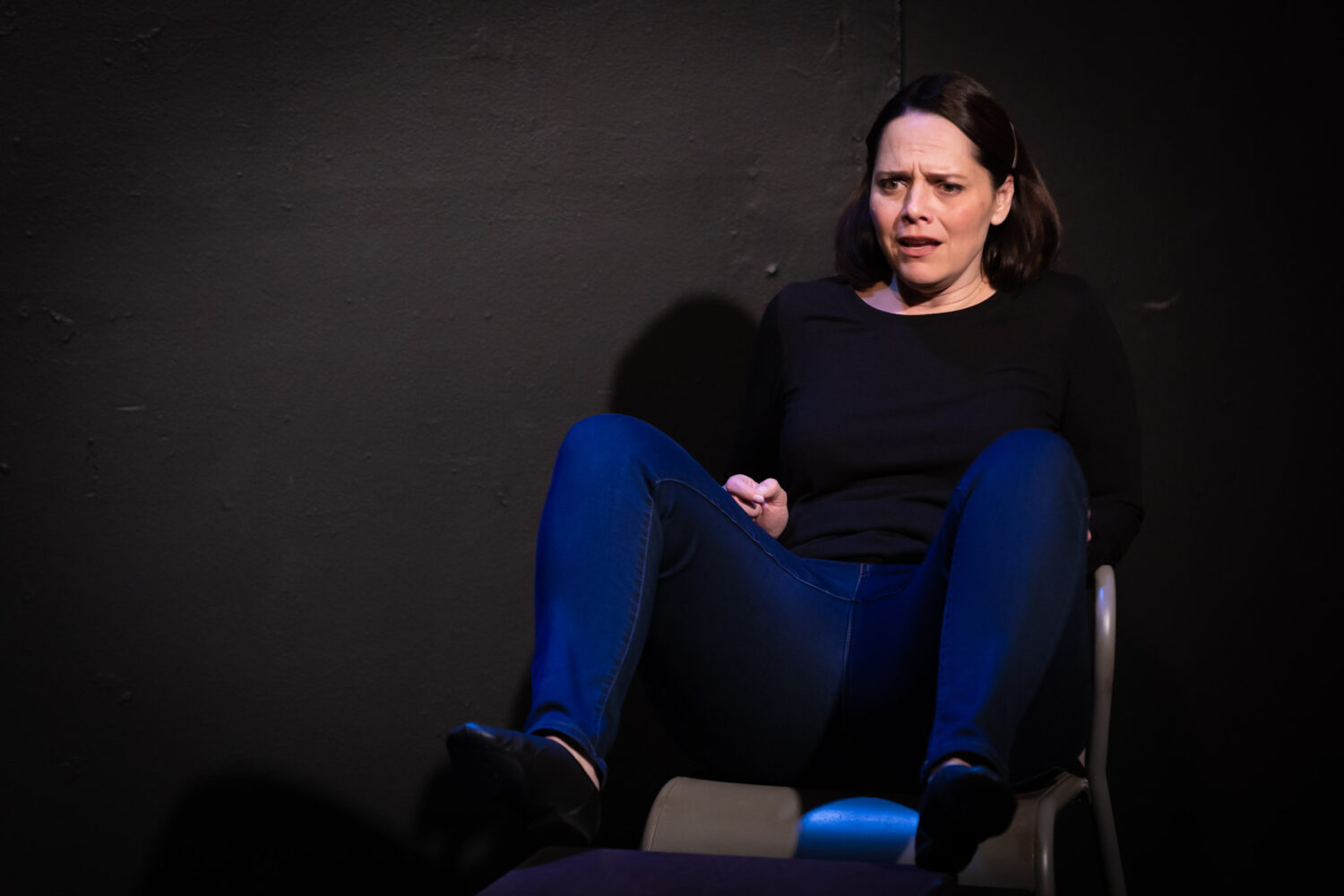
Heather R. Dowling in Fertile. Photo by Matt Kamimura.
One of these is acupuncture, and her depiction of those sessions and the woman who oversees them is quite funny. Lying on a table, full of needles, Jenny follows her mother’s advice and talks to God – who talks back and ultimately gives her some peace of mind. One of her friends is thrilled she doesn’t have children and lists off all of the ways her life is better without them. Two of her friends who are mothers make her feel like she’s never going to be able to communicate with them again unless she has children. She reaches the point of near hysteria when she speaks with her husband Mike and paints a pitiful future for the two where they end up dying alone, in sorrow. As Mike, Heather delivers some of the funniest beats, especially at this moment where he notes that she’s gone that rabbit hole awfully fast.
There’s no surprise happy ending where suddenly Jenny’s problems are solved but we get the sense that she might start to come to terms with never having children of her own and that this might not be the end of her life after all. Heather Dowling uses her body, voice and face to bring each character to life, playing with their posture, where they carry their weight – essentially using every tool in the shed to bring them to life. It’s interesting to watch a woman invest in this journey, sharing her story about something that was once the sole factor that made the difference between a good life and a bad one for women. More conversations like this will only help to demystify the whole female experience in our culture and may make more of us feel less alone.
Written and Performed by Heather R. Dowling. Directed and Developed by Jessica Lynn Johnson. Produced by Michael Dowling. The Tech/Stage Manager is Joseph King. Venue Manager is Amber Bruegel.
For more information on the Fringe website:
This post was written by the author in their personal capacity.The opinions expressed in this article are the author’s own and do not reflect the view of The Theatre Times, their staff or collaborators.
This post was written by Christine Deitner.
The views expressed here belong to the author and do not necessarily reflect our views and opinions.

